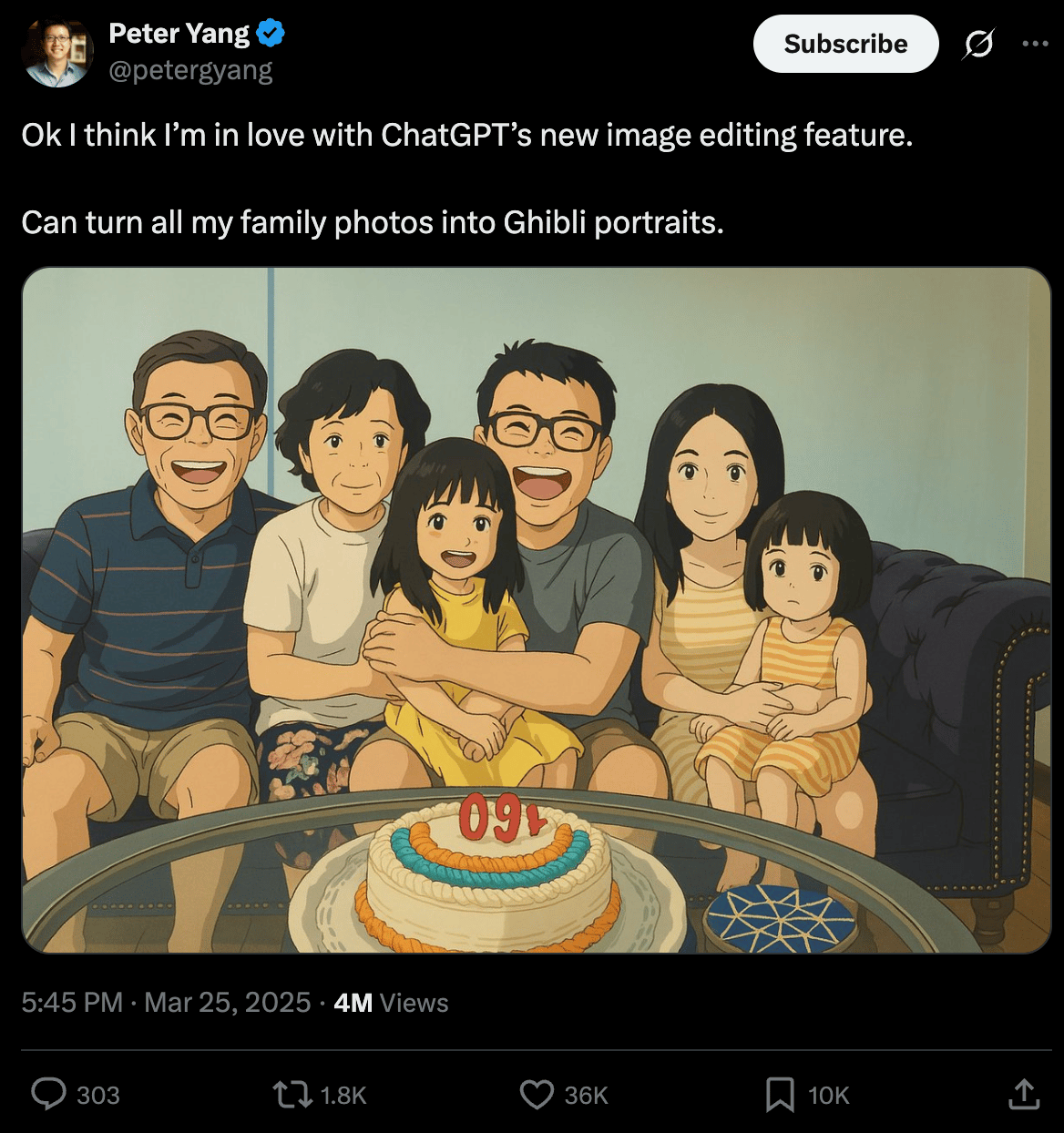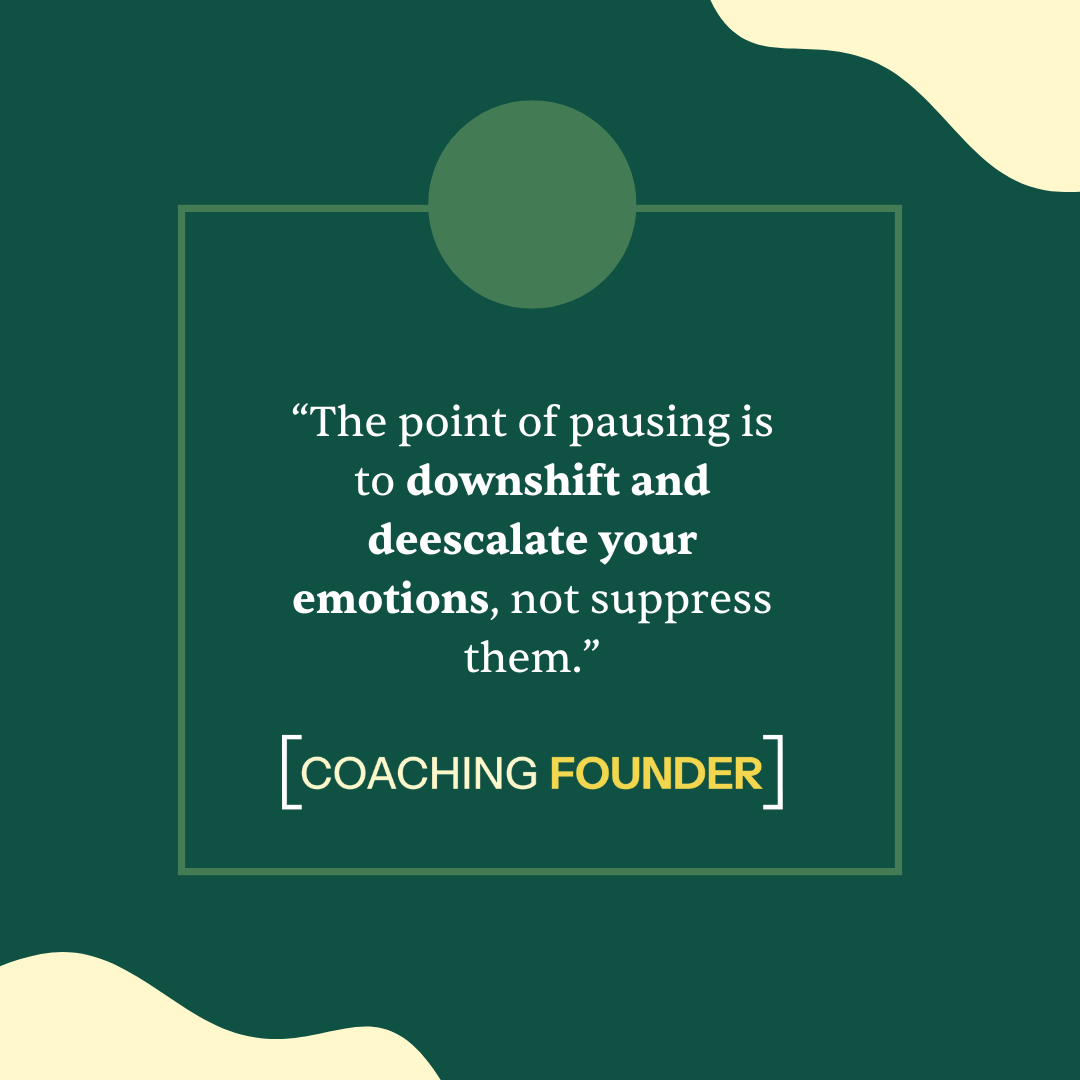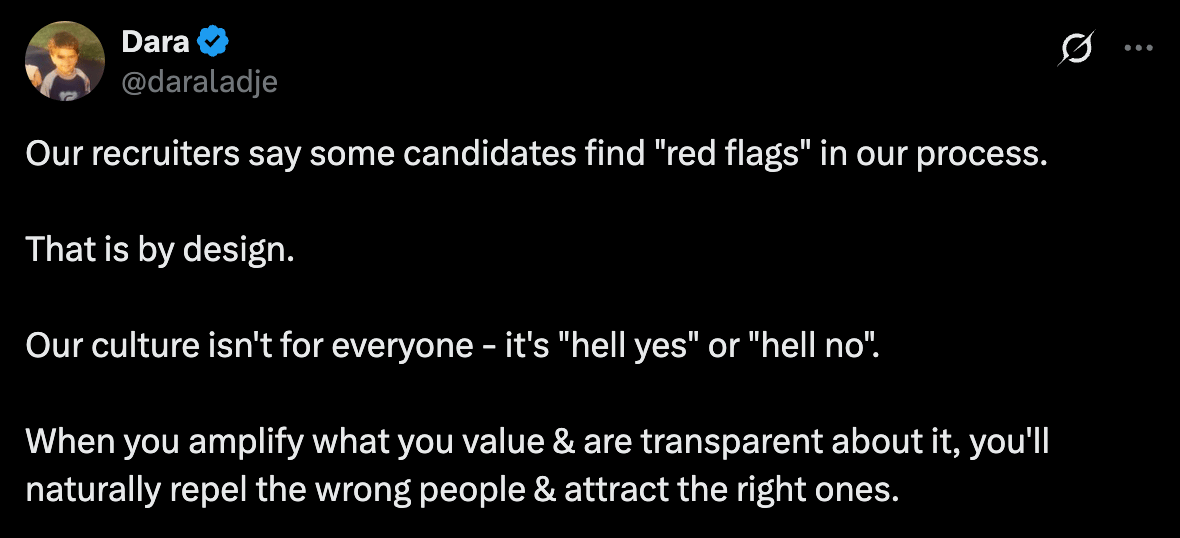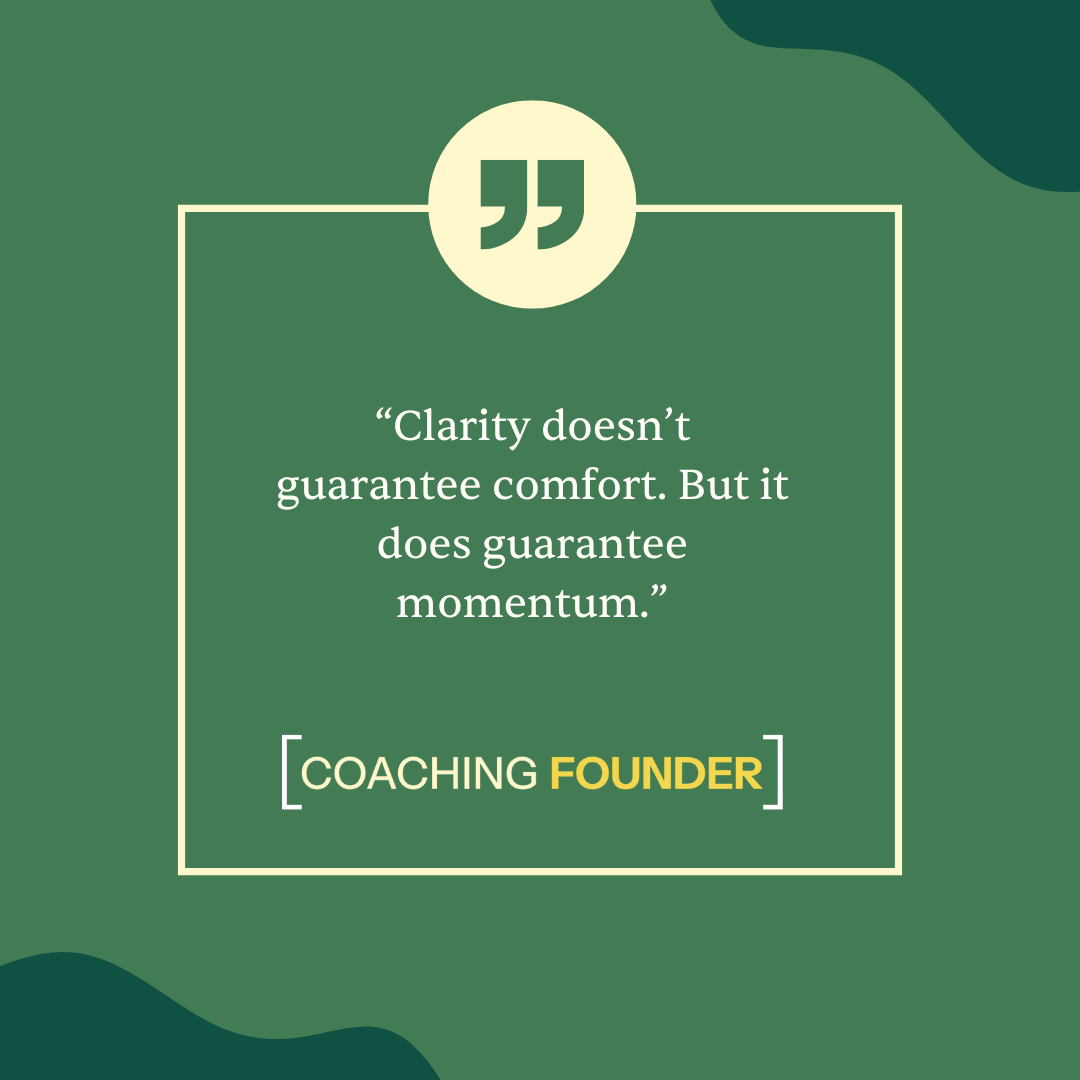- Force Multipliers
- Posts
- Making hard choices against the vocal minority
Making hard choices against the vocal minority
How to overcome your fear and put things in action, even against the (very loud) vocal minority. (Story of an extremely successful company implementing this playbook included)
Hi! Welcome to another issue of Force Multipliers, your weekly briefing from Regina Gerbeaux, where Silicon Valley's behind-the-scenes operators get battle-tested frameworks for their toughest challenges, from putting out chaotic fires to managing strong personalities.
Dear Regina,
I’m struggling to make a call that I know is right for my startup. A few (loud) customers are pushing back on a product decision we made recently. It’s not even the majority, but they’re vocal, opinionated, and it drives me nuts.
I keep second-guessing my call, even though deep down I know the decision I should make. I’m scared that if I push forward, I’ll lose trust with my customers and they’ll leave. I know making decisions from a place of fear isn’t correct, but it still shows up consistently to the point where I make no decision.
A part of this is because I’ve been given feedback before that I’m heavy-handed and can come across sort of like a dictator, since I’m highly opinionated. At the same time, delaying hard decisions is probably hurting us more.
How do I get out of this fear and do what I know needs to be done, even if it makes some people uncomfortable?
(Co-founding operator, Seed stage startup, $5M total raised, 10 people)
Dear Operator,
Have you ever seen the first movie from Harry Potter? There’s a part where the beloved character Neville Longbottom tries to stop Harry, Hermione, and Ron from going after the Sorcerer’s Stone.
Hermione, drawing her wand and looking apologetic, says, “Sorry, Neville — petrificus totalus!” before paralyzing him head to toe.

When we feel fear that grips us to our core and paralyzes us, I imagine we might feel a version of the Full Body-Bind Curse. It sounds like that’s what you’re experiencing, my Operator.
Here’s your playbook on making choices in the face of anger and outrage, especially when that fear grips you head to toe.
The Playbook on Making Hard Choices (when people are angry at you)
All operators that start, build, and run successful companies will have to make hard choices at some given point. It is nearly impossible to build a massive company that does not polarize one (very loud, but very small) group of people, regardless of the company’s ethos, political biases and affiliations, or sectors and verticals. Some of the greatest examples of this happened in 2020, when there were wildly large, fiery reactions during a time of raging uncertainty and chaos.
Operators left and right were trying to figure out: what was the best move? How could they listen attentively, while also preserving what they knew was right for their companies? What could they do to create larger circles, instead of dividing people into factors and segments, us-versus-them mentalities meant to turn us into caricatures?
There are still plenty of examples today. A few weeks ago, when OpenAI announced its image-generation capabilities with 4o, there were huge numbers of people enamored with creating images in the very-popular style of Studio Ghibli, while another group of people criticized OpenAI for not paying a single cent in royalties to Hayao Miyazaki, creator of some of Ghibli’s most beloved characters and movies.
 |   |
If you’re an operator building in healthcare and wellness, you will be criticized.
If you’re an operator building an AI-driven company, you will be criticized.
If you’re an operator building in crypto, you will be criticized.
If you’re an operator building in education, you will be criticized.
If you’re an operator building in fintech, you will be criticized.
Get the picture?
This Issue of Force Multipliers isn’t meant to be moralistic - I am not here to tell you what’s right or wrong for your company.
Rather, this is guidance when you already know what you want to do for your company, but need the extra nudge to actually take action and do what needs to be done.
Step 1: Recognize when you’re paralyzed by fear - then pause. 💡
The first step is always recognizing that you’re paralyzed, and that the fear of making the wrong decision is stopping you from doing anything at all.
Pausing isn’t necessarily a bad thing. In fact, when my coachees are scared, hurt, or angry, I usually encourage them to do absolutely nothing until they have shifted out of that state.
This is because fear, anger, frustration, and hurt are all governed by our amygdalae, the part of our brain that is reactive. This was helpful when we were being hunted by sabertooth tigers, but less helpful as keyboard warriors working white-collar jobs today.
The pausing needs to be productive, however. Pausing to distract oneself isn’t productive; I’ve known many operators who pause and distract themselves with other things while the current problem at hand festers. The point of pausing is to downshift and deescalate your emotions, not suppress them.

When you distract yourself with other busywork, you never give your body and brain time to recognize that it is, in fact, not in any physical danger (and, as a result, does not have to have the reactive brain working overtime.)
This is why I recommend spending time simply feeling your emotions, without judging them. One of my favorite meditation teachers, Jeff Warren, calls this equanimity. It means observing without judging, or trying to change it.
Inserting the pause
Acknowledge that you're afraid, or that you feel disrespected and unheard. Allow yourself to feel those emotions, without judgment or the need to fix them immediately.
Some operators need a few hours to downshift; others need a few days. The key is to recognize when you've shifted from being reactive to being responsive.
Here are some signs that you're ready to move forward:
You can think about the situation without your heart rate increasing
You're able to articulate multiple perspectives of the situation - not just your own
You find yourself naturally thinking of solutions rather than dwelling on the problem
The emotional charge of the situation has decreased significantly
Taking time to process emotions isn't weakness. It's a valuable leadership skill that allows you to make better decisions for your company.
Step 2: Decide what hills you’re willing to die on. 💡
When you’re stuck between doing what’s right and keeping people happy, the question is NOT, “How do I make everyone feel okay about this?”
The more appropriate question is:
“What am I unwilling to compromise?”
Every company is different, and cultures aren’t appropriate for everyone. So the only way to know what the right answer is by asking yourself: What do you value? What do you care about?
A good culture and mission should be opinionated. All humans have different preferences and styles of working, and they thrive in different environments. Don’t fall for tragedy of the commons; stick your stake in the ground, and be willing to take whatever heat comes your way when you do so. That’s what it means to be values-driven.

If you approach your culture and mission this way, you will have an easier time approaching decisions this way too. Decisions will naturally occur from your values. Indecision reeks of uncertainty. And uncertainty leaks into your culture fast.
Most of the time, discomfort doesn’t come from not knowing what to do. Rather, it comes from the internal tug-of-war between what you know and what people want from you. That tension is part of the job. The best operators are clear on which battles they’re willing to lose sleep over, and which they’ll let roll off their backs.
Choosing to be opinionated
If you feel shame or lose sleep when making hard decisions, evaluate why. Is it because you believe what the critics are saying? Or is it because it’s in direct opposition to your values? Based on your answer, you’ll know the right call to make: if it’s values-driven, pause and reevaluate. If it’s driven by fear of the mob, remind yourself what you value for your company, and why. Then make the hard decision.
What’s the cost of saying yes to the critics? What future decision does this one set a precedent for? Will bending here unravel other things you’ve worked hard to put in place?

Step 3: Don’t apologize, but do choose empathetic language. 💡
Over-explaining often turns into self-sabotage, or looks like you’re being apologetic for disagreeing with people. You start sounding uncertain about a decision that actually resonated deeply with you from the beginning.
Apologies are for mistakes. They aren’t for making good decisions that others don’t like.
Once you’ve decided what you’re going to do, rather than apologizing for your decision, understand that the misalignment between you and the small (but loud) mob usually comes from either lack of context, or differences in values.
If the anger comes from lack of context, feel free to share whatever context you need to share to feel good about your position. Know that the mob will likely continue being loud if they’re angry for the sake of being angry, so only do this if it would make you feel better.
The more important thing to share is what you value and why. People have a much easier time arguing execution, but reasonable people find it hard to tell someone their values are wrong.
Putting it into practice
Here are some examples of empathetic language that maintains your values:
“Our mission is to [value], and this decision aligns with that core belief.”
“We've carefully considered the impact this will have. Our commitment to [value] means sometimes making tough choices that not everyone will agree with.”
“This direction reflects what we believe is essential for building [type of company/product] that truly serves its purpose.”
Step 4: Expect the backlash, then normalize it. 💡
If your goal is to never be criticized, you’ve chosen the wrong job.
The more innovative, fast-moving, or mission-driven your company is, the more polarizing your decisions will be. (See above: remember the part where I said no matter what space, vertical, or industry you’re building in, you will face criticism at some point?)
Criticism doesn’t necessarily mean you’ve done something wrong. It just means you’re doing something uncomfortable or unfamiliar.
The trick to normalizing backlash is to remember most of the time, it’s not personal. Backlash usually stems from fear, and the sooner you can recognize that people do crazy things when they’re scared, the sooner you will be less afraid of criticism and anger.
Building a backlash plan
One thing I encourage the operators I work with to do is build a backlash plan. This is where you ask yourself:
What pushback am I most afraid of? What is paralyzing me?
What’s the story I’m telling myself when I hear this backlash?
What wisdom can I derive from this backlash? (There is always something to learn from people - even if you disagree with them!)
Is my decision a vote for or against my values? Which ones, and why?
If I choose to engage, what lines will I cross or not cross? Who will be my objective third party to catch me if I’m spiraling into anger or fear? (Usually, this person is a coach, mentor, advisor, or Chief of Staff.)
Building a backlash plan prepares your nervous system, and gives your team confidence when they see you calm in the face of public friction.
There’s a reason seasoned operators get more decisive over time. They’ve wisely learned backlash is inevitable, and they’ve stopped internalizing it.
Successful Playbook Implementation: Growth stage company ready to IPO; ~1000 employees ⭐️
When I was a Chief of Staff, there was a company Isaw getting coached. At that company, “decision-making by mob” was in full swing: the loudest people got their way, and the quieter majority ended up either feeling defeated or quietly resigning.
Though an excellent operator, the leader was so miserable, he was ready to step down from the role and retire at the ripe, old age of early 30s. He would show up to coaching sessions looking disengaged, depressed, and very dejected. Nothing gave him joy anymore.
If I could summarize what he said during coaching, it sounded something like:
I don’t know. I am tired.
I’ve been building this company for years. I have poured everything I have into it. But every day when I show up, my messages are overflowing with complaints and solutions I, frankly, blatently disagree with. There’s always a few loud people who tell me I’m doing a terrible job, and they call me all sorts of names. And that’s just on the outside.
I know what people are whispering about me behind closed doors, too. Some people agree with those loud people, but they don’t bother me as much as the people who are whispering about how disappointed they are in me for not standing up for what I believe in. I feel ashamed, like I’ve let them down, but also like I’ve let myself down. I just don’t see the point in continuing.
The company is doing great across all metrics and growing, but that doesn’t even excite me anymore. What’s the point of growing if I don’t even want to get out of bed in the morning because I hate my company?
Simply put, building the company was no longer fun for him. He felt exhausted constantly battling the small, loud minority in his company.
In response to the misery, his coach asked him what would make building the company fun again. After some thought, the operator replied with his dream scenario…but then quickly added he thought it was impossible and a pipe dream.
But through vocalizing what he wanted and allowing himself to imagine the kind of company he’d want to work at, the operator realized he had been giving into the mob because he was afraid of the backlash. And in that process, he realized he had foregone his values, and why he set out to build the company in the first place.
Through coaching, the operator then saw he could, in fact, show up to a workplace he loved. He just had to stick his stake in the ground, know that his values were in the best interest of the company, and be willing to be crucified for those values if that’s what it meant for him and the company to be successful.
This operator then made the necessary changes. He built a backlash plan, and knew it would come. (The backlash, in fact, did come. But it wasn’t nearly as bad as he thought it would be. That’s the thing about fear: it tends to exaggerate at worst, or it’s flat-out wrong at best.)
The unhappy mob quit their jobs and moved onto companies that were more closely aligned with their values - a win for them! And the employees who were happy at the company - a majority of the employees - breathed a sigh of relief, grateful that the operator finally stuck to his values and put his stake in the ground.
This operator did not retire. He kept building. And today, his company continues to grow, thrive, and succeed.
The further along you go as an operator in your startup journey, and the more successful you are, the more likely you are to encounter discomfort. You will face a tremendous amount of pressure to bend and change how you operate.
In these moments, it’s imperative you follow the playbook.
Pause - don’t allow yourself to be bullied by angry people.
Look at your values - what hills will you die on? Which will you let go?
Be empathetic - don’t apologize, but share the values you hold (and make it clear that you’re not disrespecting others’ values by having different beliefs. But just as they can have their own values, you can have your own.)
Build a backlash plan - be ready for the anger, and recognize that (1) it’s usually less drastic, and (2) it passes by very quickly.
What decisions are holding you back from building the company of your dreams? What values have you compromised? Go and apply this playbook, and let me know how it goes. My prediction: you will be infinitely happier in the long run.
Until next time,

Was this newsletter forwarded to you? Are you here for the first time? If so, remember to subscribe below…
Want more operational content?
Check out Coaching Founder for over a dozen free, downloadable Notion templates to use at your company, and tons of write-ups on how to level up your execs, your teams, and yourself.
About Regina Gerbeaux
 | Regina Gerbeaux was the first Chief of Staff to an executive coach who worked with Silicon Valley’s most successful entrepreneurs, including Brian Armstrong (Coinbase), Naval Ravikant (AngelList), Sam Altman (OpenAI / Y Combinator), and Alexandr Wang (Scale). |
Shortly after her role as Chief of Staff, then COO, she opened her own coaching practice, Coaching Founder, and has worked with outrageously talented operators on teams like Delphi AI, dYdX, Astronomer, Fanatics Live, and many more companies backed by funds like Sequoia and Andreessen Horowitz.
Her open-sourced write-ups on Operational Excellence and how to run a scaling company can be found here and her templates can be found here.
She lives in the Pacific Northwest with her partner Lucas and dog Leia, and can be found frequenting 6:00AM Orangetheory classes or hiking trails nearby.

Reply